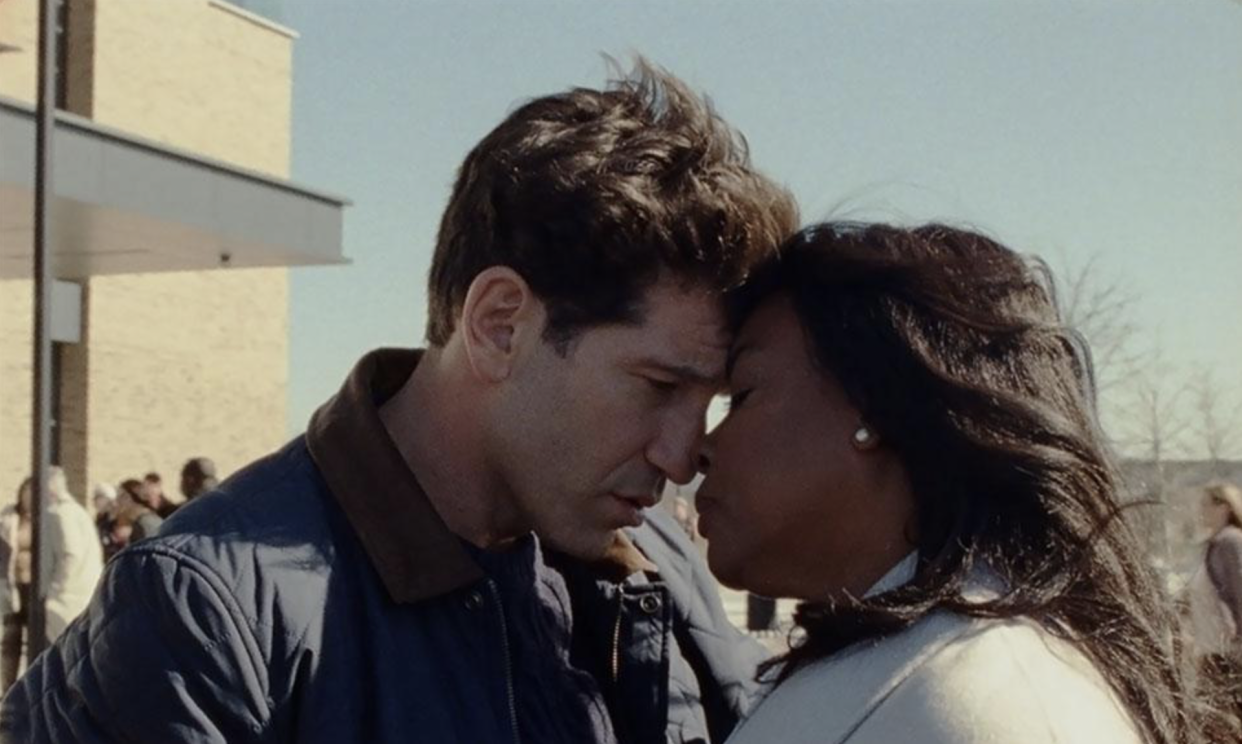‘Origin’ Review: Ava DuVernay Links Historical Injustices Together in Sprawling Misfire

Turning any popular book into a movie is a minefield. Being too faithful can result in an overstuffed mess. Too unfaithful, you risk alienating a built-in fandom. But even greater consideration has to be given when adapting a nonfiction book into a narrative film. In cases like “Nomadland,” “Capote,” and the upcoming “Killers of the Flower Moon,” filmmakers toed that line by showing us their books’ factual cores through the eyes of dramatic protagonists.
On the flip side of the equation is “Origin,” Ava DuVernay’s awkward and ungainly new adaptation of the 2020 bestseller “Caste: The Origins of Our Discontents” by Isabel Wilkerson. The misguided film comes across as a twisted sibling of “Eat Pray Love,” in which the book’s author becomes the film’s protagonist leading us on a world tour of historical atrocities.
More from IndieWire
The best thing that can be said about “Origin” — beyond the undeniable fact that it’s competently made — is that it really does make you want to read the book. Wilkerson research into the anthropological rot that links enslavement and segregation in America to the plight of the Dalits in India and the Holocaust is fascinating in the parallels it draws between what could otherwise be regarded as disparate acts of societal evil. But fails to offer sufficient nuance, speeding through to the moment where she finally lays out the eight core “pillars” of the argument without clear distinction. It seems an obvious criticism to say that a nonfiction book would have been better suited for adaptation to a documentary. But just like in her befuddlingly saccharine sitcom about Colin Kaepernick’s formative years, the filmmaker has competence of craft but a bizarre handle on concept. “Origin” messily draws a series of disparate threads that range from inoffensive to inane to inexcusable.
The film begins with an instantly recognizable recent tragedy. A young Black man in Florida is wearing a hoodie and buying Skittles. It starts to rain outside, and Trayvon Martin puts his hood up and is pursued through the streets by George Zimmerman. The scene, which DuVernay returns to throughout the film, is tense and extremely upsetting to watch. Yet DuVernay buys into the same biases that Black children face, casting an actor in his mid-twenties and robbing the moment of one of its key depravities, that this was an armed adult murdering a child.
Following Martin’s murder, Pulitzer Prize-winning Wilkerson (Aunjanue Ellis-Taylor) is pursued by editors and publishers to write about racism in America. But she is also struggling with putting her mother into an assisted living facility, despite her mother’s wishes to go there. She’s backed up by her cousin, played by the always charming Niecy Nash-Betts, and her dashing husband Jon Bernthal, embodying the platonic ideal of white allyship. But following a series of unfortunate events, she finds herself spiraling through grief. The traumatic experience convinces her that she can see a connection between seemingly unconnected events, and she spends the film speaking to experts who can reframe and attribute these atrocities to “caste” rather than the blanket of racism.
Wilkerson encounters a random assortment of figures, including a MAGA hat emblazoned handyman played by Nick Offerman (who had a mean dad) and a woman played by Audra McDonald (whose non-mean dad ingeniously named her “Miss” so white people would have to address her respectfully). Other brutalities make briefer cameos, and all these images are composed with the elegance one might expect of the director behind “Selma” and “Middle of Nowhere.” Still, they form melodramatic montages that are overwrought and chaotic. Smaller moments given more space, such as a Dalit man coating another in oil to protect his skin from filth or a young boy on a lilo floating on a whites-only pool unable to touch the water, have gentle poignancy. But DuVernay unrelentingly cuts from apex of cruelty to apex of cruelty, making them collectively less impactful.
Despite Ellis-Taylor’s best efforts, there’s never much of a sense of who our central protagonist is, what truly motivates her, or even where her expertise lies. At one moment, she seems open to new information and ideas, at others, she is determined to prove only she comprehends human behaviour. She’s sometimes presented as a brilliant scholar, yet at others, she seems woefully ill-informed and, puzzlingly, occasionally seems taken aback by subjects we’ve previously seen her deliver lectures on.
DuVernay’s film is unable to fuse melodrama and academia into a single narrative, even with such rich source material and as fascinating a subject as Isabel Wilkerson. The only possible conclusion it invites is every film critic’s least favorite sentence: Just read the book.
Grade: C-
“Origin” premiered at the 2023 Venice Film Festival. It will be released by Neon in the U.S later this year.
Best of IndieWire
Sign up for Indiewire's Newsletter. For the latest news, follow us on Facebook, Twitter, and Instagram.

 Yahoo News
Yahoo News 
